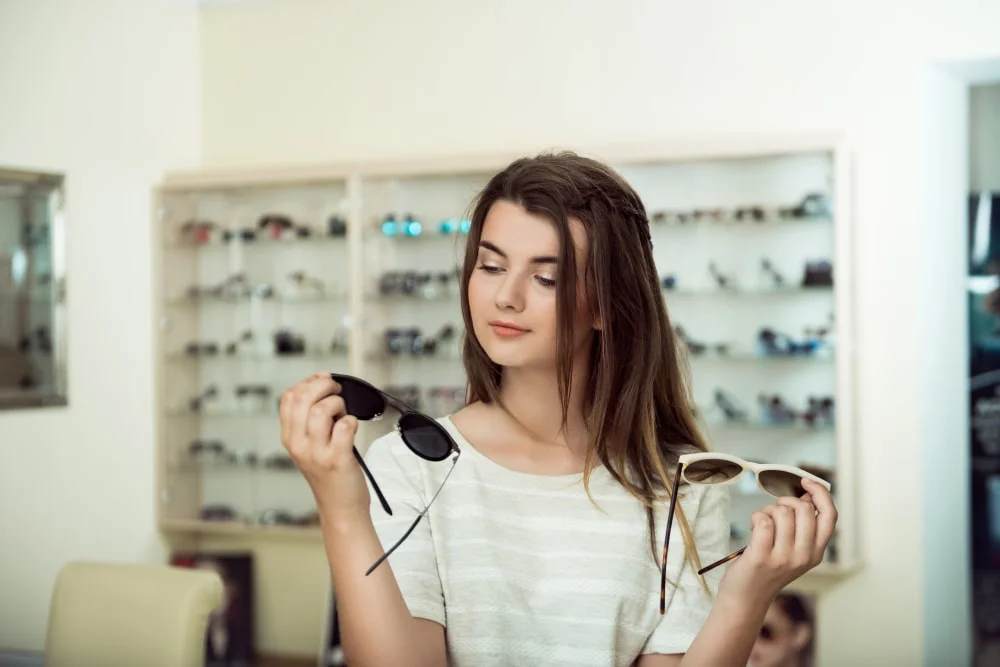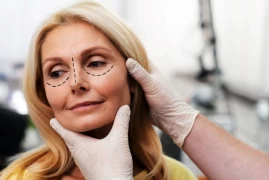
Choosing Sunglasses: How to Make the Best Choice for Eye Health
- Choosing Sunglasses: How to Make the Best Choice for Eye Health
- UV Protection: The Foundation of Eye Health
- Lens and Material Quality
- Frame Structure and Design
- Lens Color Selection
- Certification and Documentation
- Benefits of Using Sunglasses
- Conclusion: Your Eyes Will Serve You for a Lifetime
As an ophthalmologist, one of the most common questions I receive throughout my career is: “Which sunglasses should I buy?” Unfortunately, many people see sunglasses merely as a fashion accessory; however, choosing the right pair is essential for protecting your eye health. In this article, I want to explain in detail how to choose the correct sunglasses and what factors you should pay attention to.
UV Protection: The Foundation of Eye Health
The first and most important criterion in sunglasses is UV (ultraviolet) protection. UV-A and UV-B rays from the sun can cause serious damage to every layer of the eye, from the cornea to the lens and retina. In the long term, they can contribute to irreversible conditions such as cataracts and macular degeneration. Therefore, the sunglasses you choose should clearly indicate 100% UV400 protection. Dark lenses without UV protection actually dilate your pupils more, allowing even more harmful rays to enter the eye—this is extremely dangerous for eye health.
Lens and Material Quality
The quality of the lenses in sunglasses is crucial for both visual clarity and reducing eye strain. The lenses should be free of scratches, distortions, or color irregularities. Polarized lenses are particularly useful in environments with reflected light, such as at sea, on snow, or on asphalt, as they minimize glare and provide visual comfort. However, polarization does not mean UV protection; therefore, in addition to polarization, the lenses must have UV400 protection.
Moreover, lenses made of shatter-resistant materials like polycarbonate are important for safety. Especially for people who play sports or spend active time outdoors, impact-resistant lenses are preferable.
Frame Structure and Design
When choosing a frame, it’s important to consider not only how it suits your face shape but also how well it wraps around your eyes. Frames that provide good coverage help block UV rays coming from the sides. Excessive distance between your eyes and the lenses reduces the effectiveness of protection. Additionally, the frame should have an ergonomic design that sits comfortably on your nose and ears; otherwise, prolonged use can cause pressure, discomfort, and headaches.

Lens Color Selection
The color of the lenses is not just an aesthetic detail; it also affects visual performance in different environments and activities:
• Gray lenses: Provide the most accurate color perception, ideal for everyday use.
• Brown/amber tones: Increase contrast, especially preferred for outdoor activities.
• Green lenses: Maintain color balance in bright light.
• Yellow/orange lenses: Enhance contrast in cloudy or low-light conditions, but are not suitable for night driving.
Remember, the darkness of the lenses is not an indicator of UV protection. Even very light-colored lenses can offer high UV protection.
Certification and Documentation
Make sure that the sunglasses you purchase have certifications proving they meet international quality standards such as CE, ANSI, or ISO. Sunglasses from unauthorized manufacturers or counterfeit brands pose a serious risk to your eye health and can cause long-term damage.
Benefits of Using Sunglasses
Wearing the right sunglasses:
• Protects your eyes from UV-related diseases,
• Delays the aging of the delicate skin around your eyes,
• Prevents glare, increasing safety while driving and during outdoor activities,
• Reduces the severity of issues like allergic reactions and dryness.
Conclusion: Your Eyes Will Serve You for a Lifetime
As I always remind my patients: your eyes are among your organs that cannot regenerate; therefore, you should consider sunglasses not merely as a fashion choice, but as an investment in your eye health. When buying sunglasses, always choose certified products from trusted optical centers. Protect your eyes so that you can continue to see life clearly and healthily.

Dr. Konuralp Yakar, Ph.D.
Ophthalmology Specialist




